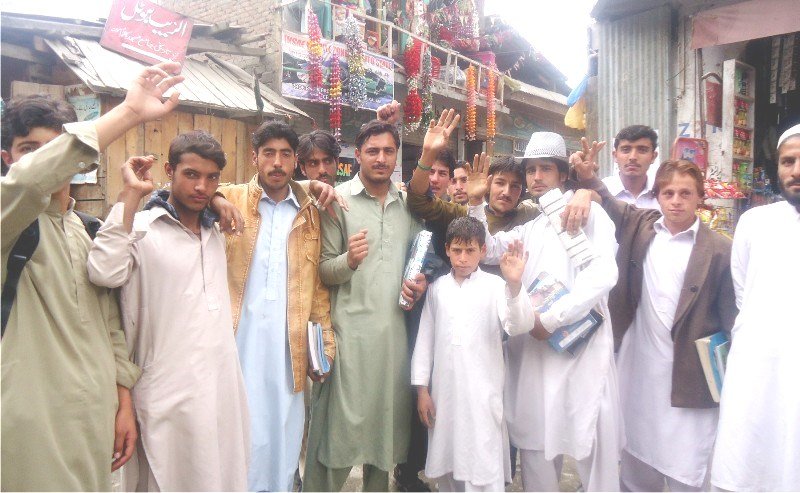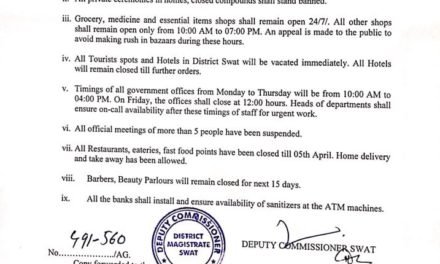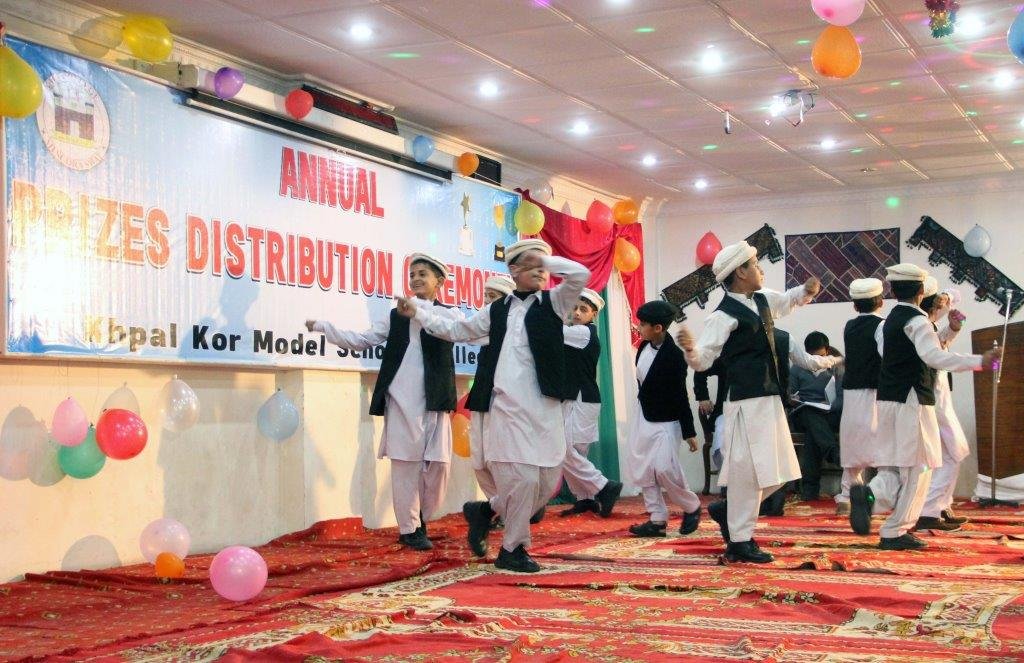By Fazal Khaliq
Swat/Buner: Unicef Regional Director for South Asia Karin Hulshop advised the local students here on Wednesday to wash their hands properly to avoid diseases.
She met with the students of primary school in Bhai Kalley during her visit to Swat and Buner districts to inspect the sanitation projects, implemented by Sarhad Rural Support Programme in collaboration with Unicef.
Unicef country representative Angela Keareney and chief field officer Dr Franswa were accompanying her during the visit.
Karin Hulshop told the students that Unicef was working for child protection, health, childhood development, immunisation and nutrition. “We do not work alone but with local communities, government and local organisations to carry out our activities properly,” she said.

Karin Hulshop, regional director UNICEF, talks with school students about sanitation and proper hands washing. Photo by Faza Khaliq
She said that Unicef wanted the children to become healthy and useful citizens.
On the occasion, the members of ‘Wash Club’ showed properly cleaning and washing of their hands.
“At first we did not know how to use toilet but now we follow the proper way, taught to us by the Wash Club to feel healthy and clean,” said Usman Ghani, a fifth grader.
The students said that after being sensitised and trained, they formed different committees in the schools. “Our group has the responsibility to keep our wash station clean which we do regularly,” said Faisal Khan, a fourth grader.
Mohammad Javed, another student, said that they collected money from their classmates to buy a good quality soap, which they kept it in the class. “When the students want to wash their hands, they take the soap and bring it back after using it,” he added.

UNICEF delegation at a village in district Buner to see the water supply schemes, they installed. Photo by Fazal Khaliq
The Unicef delegation later visited some villages to see the water supply schemes, they installed, and also met with community members.
The SRSP members said that 106,000 people in around 120 villages were trained and made aware of the proper wash messages while 20 wash facilities, toilets, safe drinking water and hand wash stations would be installed in the area.





